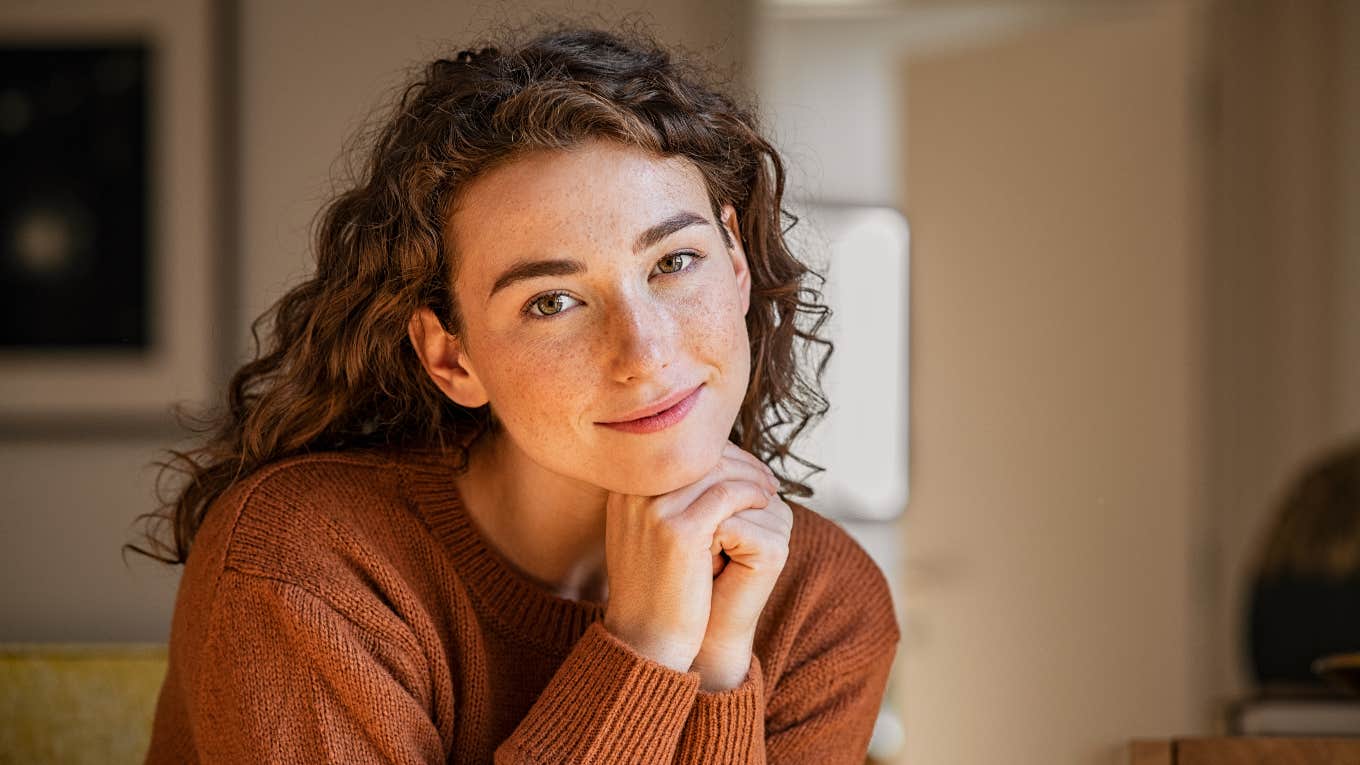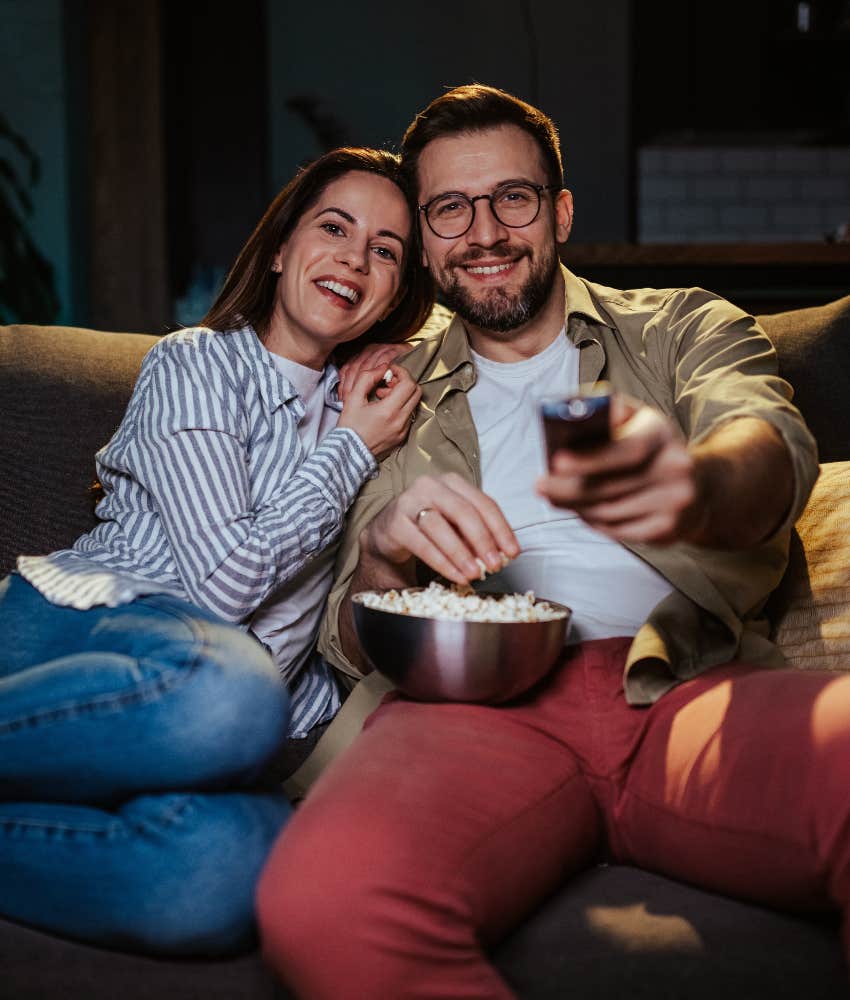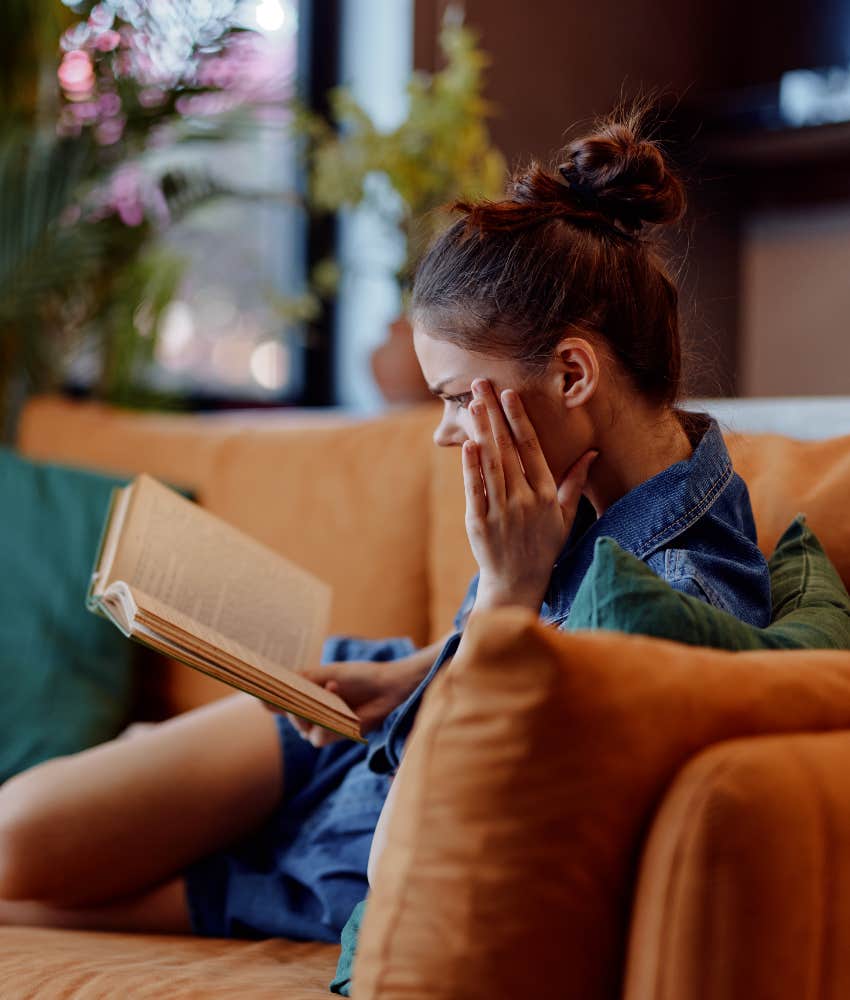Science Says This One Guilty Pleasure Is Actually Pretty Good For Your Health
A lot of people will be happy to hear this.
 Ground Picture / Shutterstock
Ground Picture / Shutterstock We all have our guilty pleasures. Scrolling on social media, eating junk food, or even listening to cheesy pop music when you're driving in the car.
These are small sources of enjoyment that we bring into our daily lives, even if we know we shouldn't. However, what if one of those so-called "bad habits" might actually be doing you some good? New research says that a popular guilty pleasure (though often frowned upon) could have some surprising benefits.
A recent study suggests that binge-watching may actually be good for your health.
The study, published in Acta Psychologica, discovered that people who consecutively watch shows or movies (or even read books) for long periods of time are more likely to engage in "retrospective imaginative involvement" afterwards. This means that they continue to think about the stories for a while after actually consuming them.
 Zamrznuti tonovi | Shutterstock
Zamrznuti tonovi | Shutterstock
The research found that people may use their memories of these stories as a coping mechanism for daily stressors. Certain elements, such as characters and dialogue, can provide comfort when facing mental challenges. Marathon viewing or reading sessions help people expand these stories in their minds and make them more memorable.
Participants who were more likely to binge-watch showed the ability to build stronger mental models for narratives, making them much easier to recall during retrospective imaginative involvement.
Different stories are linked to different kinds of mental engagement.
Researchers also determined that certain kinds of narratives had specific mental impacts on participants. More light-hearted comedies or adventures invoked simple mental replay, but deeper and more thought-provoking stories sparked creative imagination and expansion.
Another important factor was the motivation for watching. People who consumed stories to expand their knowledge and perspectives mentally engaged more than those who watched to escape from the real world, but both groups still experienced benefits.
Although the study was limited to a specific demographic of college students and relied on their self-reported memories, it raises the potential for new discussions about media consumption and its effects. Binge-watching is commonly seen as an unhealthy habit, but it can actually produce positive psychological functions.
Other studies have also found benefits of binge-watching or reading.
UC Santa Barbara communication professor Robin Nabi, who researches the connection between emotion and the effects of mediated messages, claims that our favorite shows and books create an emotional experience for us, one that we want to keep reliving.
 ShotPrime Studio | Shutterstock
ShotPrime Studio | Shutterstock
She also shared that we form bonds with the characters we enjoy watching or reading about. "They feel like they are friends of ours," Nabi said. "And because we like them, we keep coming back. So we develop those kinds of relationships with fictional characters as well."
While some may think it's a waste of time, watching television or reading books provides an invaluable opportunity for de-stressing. Nabi explained, "We tend to look at media as a frivolous experience. That really undermines the potential benefits that we can get from engaging with the media in ways that help us de-stress, help us escape so we can come back to our real world, to our families, to our jobs — just feel rejuvenated and ready to deal with whatever is happening in our real lives."
In the midst of all the bad news we get regularly just from the headlines, this is by far the best study ever. So, next time someone rolls their eyes when you tell them you spent your Saturday watching an entire season of "Love Island," bask in the knowledge that your favorite guilty pleasure is improving your health. Now...if only science would get on board with chocolate cake actually being a health food...
Kayla Asbach is a writer currently working on her bachelor's degree at the University of Central Florida. She covers relationships, psychology, self-help, pop culture, and human interest topics.

